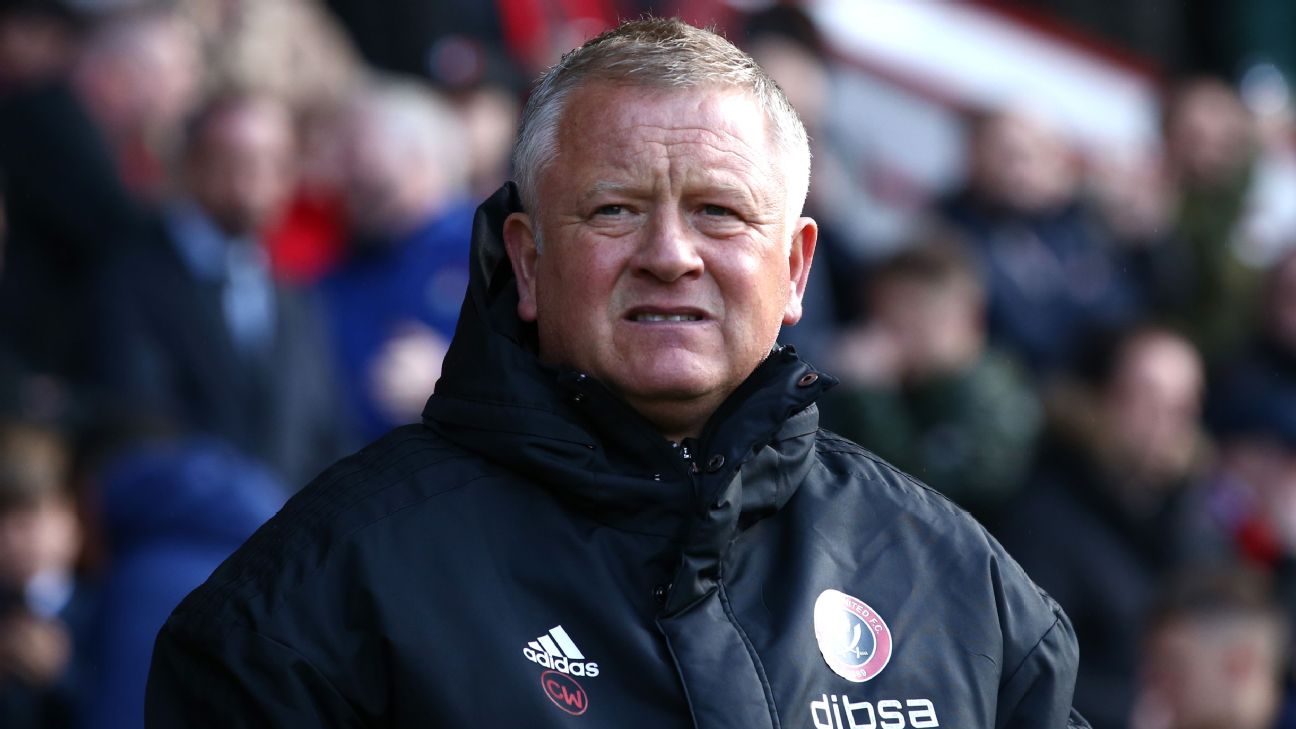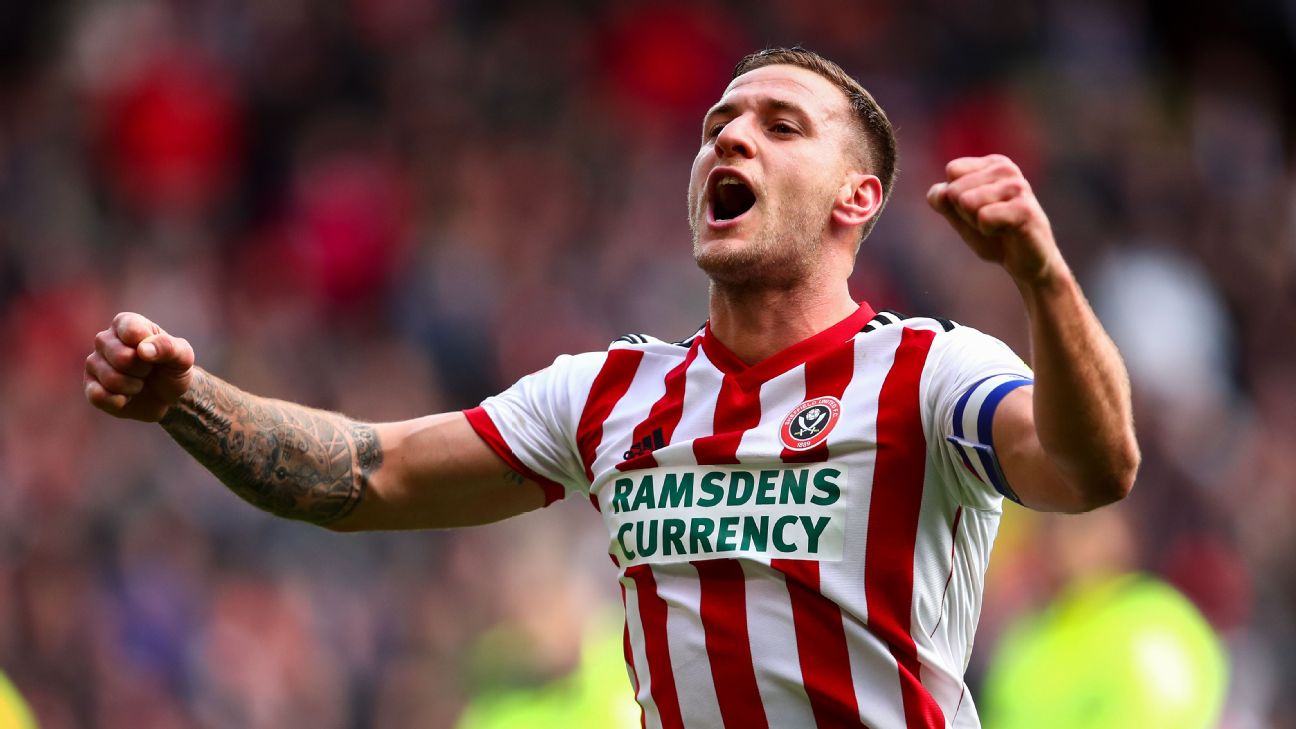Sheffield United confirmed their place in the top flight for next season when Leeds United were held to a draw against Aston Villa on Sunday. Here we take a look at the Blades and what they will bring to the Premier League.
Last time Sheffield United were in the Premier League
Sheffield United’s last season in the top flight still rankles. As the end of the 2006-07 season neared, it looked like West Ham would be relegated and the Blades would survive. Enter Carlos Tevez, who almost singlehandedly dragged the Hammers to seven wins from their last nine games as they stayed up on the final day.
However, West Ham were later found to have breached third-party ownership rules, meaning Tevez should have been ineligible for that run-in. They ultimately paid United £20 million in compensation, but some involved will never forget.
Who’s the manager?
Chris Wilder has been the best manager in English football in the past four seasons, if not longer. In January 2014 he was appointed Northampton boss when they were bottom of the whole Football League; having kept them up, he got them promoted in 2016, before moving to his boyhood club Sheffield United, who had just suffered their worst season in more than 30 years.
They were promoted in his first season, after spending six years in League One, and came closer to back-to-back promotions than they had any right to. Little was expected this season, but Wilder — ostensibly a tough, no nonsense, “proper football man” but who is a deeper thinker than he lets on — has thrown together a team full of players who didn’t quite fit anywhere else and turned them into a Premier League side.

History
You have to go back more than a century for Sheffield United’s real glory days. Their only league title came in 1898, when they won the old First Division and the following year lifted the first of their four FA Cups. Since then, they’ve endured trips up and down the divisions, sinking to their lowest point in 1981 when they were relegated to the old Fourth Division.
They were founding members of the Premier League and survived in its first season despite a dreadful first half of the campaign, but after relegation in 1994, that 2006-07 disappointment has been their only top-flight campaign since. In 2013 Saudi prince Abdullah bin Musa’ad bin Abdul Aziz bought 50 percent of the club, and something to keep an eye on over the summer and into next season is the dispute between him and Kevin McCabe, the man who owns the other 50 percent, which looks set to go to the courts.
Key player
It undoubtedly makes things that little bit more special for United fans that not only is their manager a fan of the club, but their captain is too. Billy Sharp returned for a third spell at Bramall Lane in 2015, and revitalised his career. Before coming back he last scored 20 goals in 2007, but has now broken that mark three times in four seasons and has been their top scorer again this term.
David McGoldrick, a free transfer from Ipswich last summer, won their player of the year award while John Fleck and Oliver Norwood run the midfield, and Manchester United loanee Dean Henderson has been a consistent performer in goal this term.
How do they play?
Rarely straying from a 3-5-2, Wilder’s side play better football than they’re given credit for. Those who know the team well say that Alan Knill, Wilder’s assistant, is often the brains behind their tactical work, so you can probably credit him with the overlapping centre-backs that have flummoxed plenty of defences this season.
Wilder, slightly belying his rather gruff persona, studies the best teams and incorporates what he can into the Blades’ play, too. For example, he spent some time looking at how Manchester City scored so many goals from low crosses, and tried to teach his side the same.
Expectations for 2019-20
It’s pretty extraordinary that Sheffield United will even be in the Premier League next season, so the first task will be to lose the sense of “just being happy to be here.” Wilder will look to get rid of that pretty quickly, so the question then becomes whether they will be good enough to survive in the top flight.
The short, instinctive answer to that would be “no,” but Wilder and Knill’s big strength in the past three years has been to extract the maximum, and then some, from players that other managers have struggled with.
They almost certainly won’t spend massive money on new players, so Wilder’s skills will be stretched again. Perhaps the biggest worry will be how the potential boardroom struggles will impact the team.
